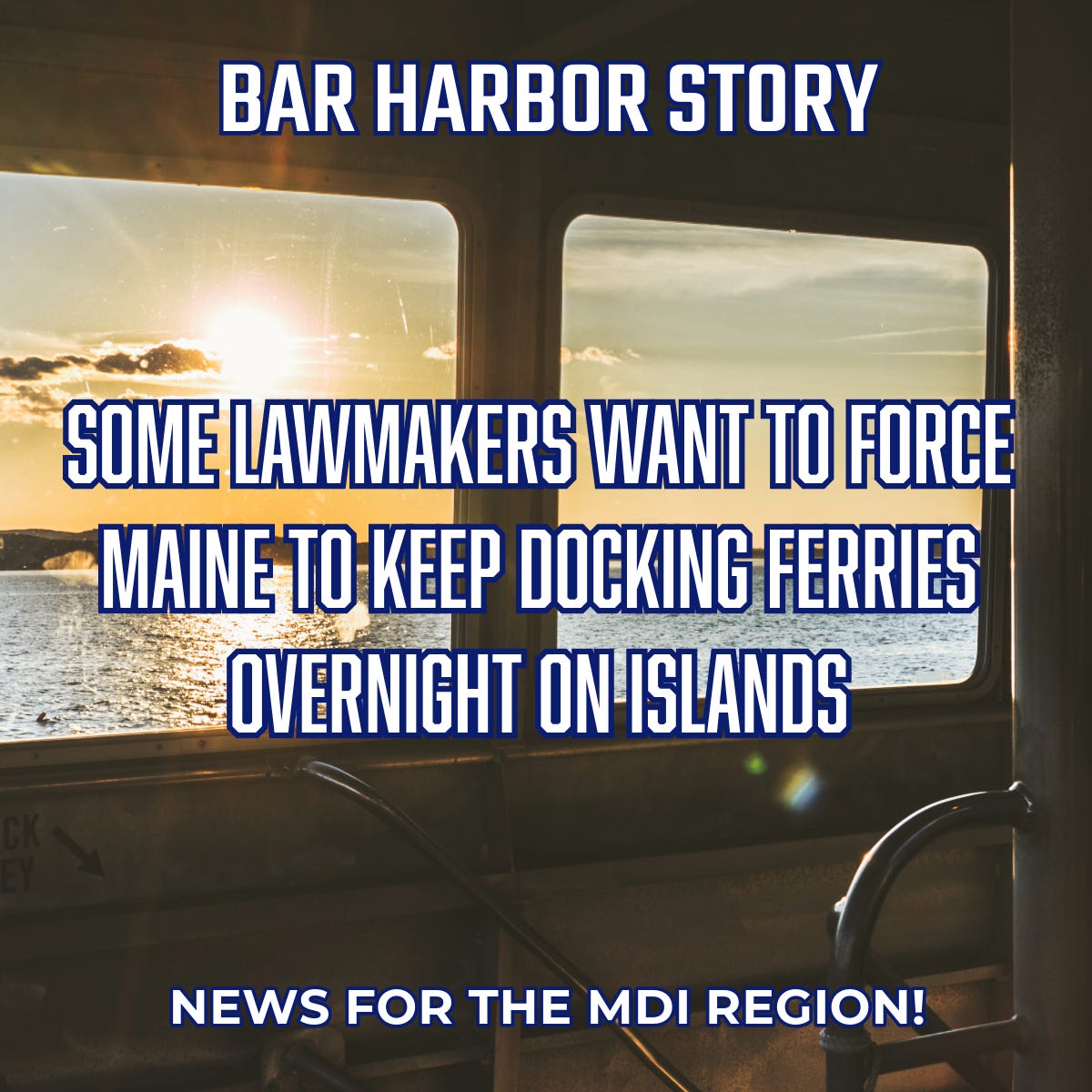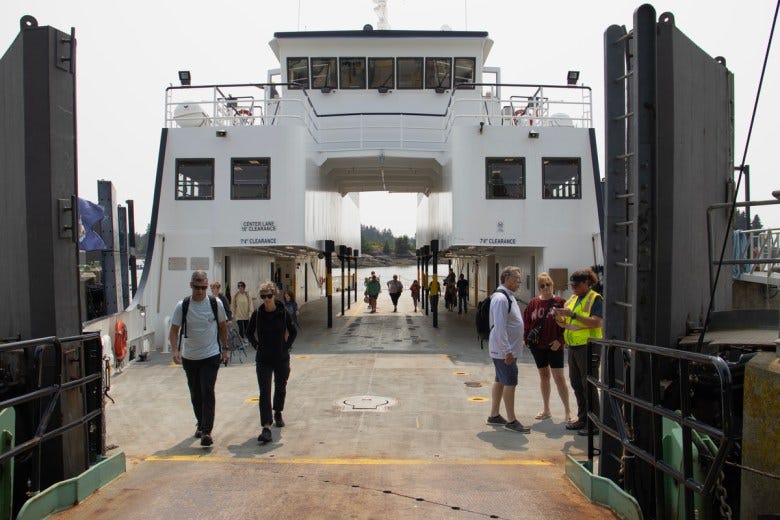Some Lawmakers Want to Force Maine to Keep Docking Ferries Overnight on Islands
by Jules Walkup/Bangor Daily News
AUGUSTA—Lawmakers along Maine’s coast have introduced a bill that would require the State Ferry Service to berth its vessels on the unbridged islands that it serves off the midcoast and Hancock County.
The legislation has intensified a debate that’s been playing out over the last few months since the state Department of Transportation proposed moving away from its decades-old practice of docking ferries overnight on the islands. Instead, the agency aims to berth them on the mainland.
In early January, Maine DOT Commissioner Bruce van Note said the agency could make the change within two years to help provide a better work-life balance for ferry workers who live on the mainland.
But pushback from island communities was immediate, with local officials claiming that the plan would remove the ability of the vessels to transport island residents to the mainland when they have overnight medical emergencies.
Maine DOT has asserted that, if it changes where the ferries berth, it would provide separate emergency vessels to provide medical transport from the islands at night — although island officials have argued their communities could incur other costs if the shift happens.
While a legislative committee has already given initial approval to a separate bill that would require the state to study the role that ferries play in providing emergency medical transport to island residents — part of a larger uptick in ferry-related legislation this year — the new proposal would go much further and force Maine DOT to abandon the shift to berthing on the mainland.
In written testimony for LD 1231, lead sponsor Rep. Billy Faulkingham, R-Winter Harbor, said berthing the ferries on the islands not only would provide transportation for medical emergencies, but also for evacuation in the event of natural disasters.
“While we hope never to face a natural disaster or emergency that would require mass evacuation, it is essential to be prepared. These Islands are particularly vulnerable to being cut off from the mainland during severe weather, and delays in ferry access can significantly impede timely evacuation in cases of fires, storms or other disaster situations,” Faulkingham said.
Island residents, officials and others offered written testimony in support of the bill.
One mainland resident, John C Hersey of Hampden, detailed a visit to Swan’s Island this past March when he “fell and was unable to get up without the assistance of my friends,” resulting in “excessive” pain. Hersey said he rode in an ambulance onto the ferry, which took him to a trauma unit in Bangor for emergency surgery.
“Having the Ferry available for these emergencies makes a difference in the life of not only the residents of the islands, but also in the life of those of us that have the privilege to visit,” Hersey said in his testimony.
Others gave their own stories and reasons for supporting the bill. Nancy Barlow, an Islesboro resident, said that she had to use the ferry to be taken to the mainland via ambulance for pneumonia.
Teri Blackadar, a part-time Swan’s Island resident and registered nurse who works at MaineHealth Waldo Hospital, said the facility “frequently” receives calls overnight regarding people who are taken from Islesboro via ferry to meet the mainland ambulance.
Elin Elisofon, a Vinalhaven resident, said when weather is uncooperative, islanders can’t be evacuated on a LifeFlight of Maine helicopter and must instead rely on ferries.
A representative for LifeFlight, Thomas Judge, also submitted testimony for the bill, but he did not take a formal position on the legislation. Instead, he endorsed the other bill that would study the role of ferries in the island EMS system, which has already received an ought-to-pass-vote from the Legislature’s public safety committee.
“We need a data-driven system design to meet the needs of today and the future in assuring our island communities have a reliable evacuation system for medical emergencies,” Judge said in his testimony.
In a Maine DOT white paper that includes written testimony on several bills, Van Note reiterated that berthing the ferries on the mainland would help address the agency’s disruptive staffing shortages by creating a better work-life balance for ferry employees, who would not need to spend their nights on the islands.
“Maine DOT believes [berthing ferries on the mainland] is in the best interest for long-term improvements to reliability, efficiency and customer service,” Van Note said. “The status quo does not appear sustainable.”
This story appears through a media partnership with the Bangor Daily News. This allows the BDN to use a certain amount of our stories a week and we can also choose to share that paper’s.
Follow us (Bar Harbor Story) on Facebook. And as a reminder, you can easily view all our past stories and press releases here.
If you’d like to donate to help support us, you can, but no pressure! Just click here (about how you can give) or here (a direct link), which is the same as the button below.
If you’d like to sponsor the Bar Harbor Story, you can! Learn more here.





